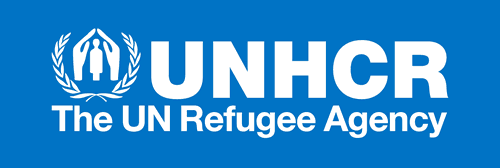Pressmeddelande -
International solidarity and responsibility sharing require both humanitarian aid and asylum space for refugees
At the end of 2013, the number of refugees globally under UNHCR’s mandate was estimated at 11.7 million, some 1.2 million more than at the end of 2012. This increase, from one year to another, was the highest in 20 years. During 2013, 2.2 million Syrian refugees alone were registered, mainly in the neighbouring countries, while hundreds of thousands fled their country across Africa, from the Central African Republic, the Democratic Republic of the Congo, South Sudan, Sudan and Mali.
UNHCR’s 2013 Global Trends Report indicates that nearly 86 per cent of the world’s refugees are hosted by developing countries, often neighbouring those in conflict. By keeping their borders open and receiving high numbers of refugees, these countries are concretely saving lives every day. For example, since March 2011, nearly 3 million Syrian refugees have found safety in neighbouring countries. At the same time, some 130,000 Syrian refugees have arrived to Europe (excluding Turkey).
International instruments relating to refugees stress the importance of international solidarity and burden-sharing with refugee-hosting countries to mitigate the impact of refugees on host countries’ economies, infrastructure, services, environment, social and political situation and security. The major host countries are often compelled to divert considerable resources and manpower to deal with issues relating to refugee populations, detracting from the pressing demands of their own development. In this situation, humanitarian funding is critical to support the neighbouring countries’ efforts to provide protection and assistance to the refugees, and to alleviate the pressure and burden on the host communities. However, the capacity of some host countries to absorb and respond to the needs of the rapidly increasing number of refugees may be seriously challenged, even with additional funding. For example, some 25 per cent of the entire population of Lebanon are currently Syrian refugees. The main refugee-hosting countries therefore also need European and other countries to demonstrate international solidarity and burden sharing, by upholding the right to asylum of those refugees who arrive at Europe’s borders, and by providing durable solutions for refugees through resettlement.
Concrete expressions of international solidarity serve multiple purposes: Most importantly, they help to save the lives of thousands of refugee children, women and men who cannot find effective protection in the region due to particular vulnerabilities, such as medical and psychosocial needs arising from torture and trauma. Also, by accepting some of the refugees on e.g. resettlement or humanitarian admission, States help the main refugee-hosting countries to keep their borders and territories open to new refugees. In addition, the need for refugees to resort to human smugglers or traffickers in order to seek safety in Europe is reduced if legal channels for entry, such as through resettlement, are available. Nearly 1,900 people have died this year alone in the Mediterranean, many of them fleeing Eritrea, Syria and other countries torn by violence to seek safety in Europe by risking their lives at sea in the hand of smugglers.
Additional information on issues above:
International Solidarity and Burden-Sharing in all its Aspects: National, Regional and International Responsibilities for Refugees: http://www.refworld.org/docid/4a54bc2f0.html
UNHCR’s report Syrian Refugees in Europe: What Europe Can Do to Ensure Protection and Solidarity: http://www.refworld.org/docid/53b69f574.html
Central Mediterranean Sea Initiative (CMSI) EU solidarity for rescue-at-sea and protection of refugees and migrants: http://www.unhcr.org/531990199.html
UNHCR 2013 Global Trends Report: http://www.unhcr.org/5399a14f9.html
UNHCR 2014 Global Resettlement Needs: http://www.unhcr.org/51e3eabf9.html
Ämnen
- Sociala frågor
Kategorier
- syrien
- flyktingar
- internflyktingar
- europa
- värdland
- flyktingmottagade
- unhcr
FN:s flyktingorgan UNHCR verkar för skydd och bistånd till miljoner flyktingar världen över, på ett opartiskt sätt och oberoende av etnisk bakgrund, religion, politisk åskådning och kön.
